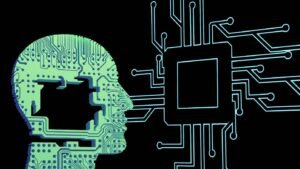With the rapid advancement of artificial intelligence (AI) technology, there are numerous issues that arise, ranging from ethical concerns to potential job displacement. As AI becomes increasingly integrated into various aspects of our lives, it is crucial to understand and address these issues to ensure its responsible and beneficial use.
**Key Takeaways:**
1. AI presents both incredible opportunities and significant challenges in areas such as ethics, job displacement, and bias.
2. Ethical concerns surrounding AI include privacy infringement, autonomous decision-making, and the impact on human dignity.
3. The potential for job displacement requires proactive measures to ensure a smooth transition for affected workers.
4. Bias in AI systems can perpetuate societal inequalities if not appropriately addressed.
**Ethical Concerns in AI**
One of the foremost issues related to AI is the ethical considerations it poses. AI technologies, particularly in fields such as facial recognition and surveillance, can easily encroach upon individual privacy. *Striking a balance between AI’s potential benefits and safeguarding privacy rights is a complex task that requires careful consideration and regulation.*
Additionally, the autonomous decision-making capabilities of AI systems raise concerns about accountability and transparency. When machines make decisions that impact human lives, the lack of explanation behind these decisions can lead to mistrust and potential injustices. *Ensuring that AI systems provide understandable reasoning for their actions is crucial to maintain social acceptance.*
**Job Displacement**
AI’s ability to automate tasks previously performed by humans has led to concerns about extensive job displacement. While this technological shift has the potential to improve efficiency and productivity, it also threatens various jobs across multiple industries. *Efficient retraining programs and the creation of new job opportunities are essential to provide a safety net for workers affected by AI-driven automation.*
Furthermore, the rapid pace of AI advancement requires workers to continually update their skills to remain relevant in the job market. Governments, educational institutions, and businesses must collaborate to provide lifelong learning opportunities for individuals to adapt to the changing job landscape.
**Bias in AI Systems**
Another critical issue is the potential bias present in AI algorithms. AI systems learn from vast amounts of data, and if that data includes biased or discriminatory content, it can perpetuate societal inequalities. *To prevent biased outcomes, it is imperative to ensure diverse and representative data is used during AI model training.*
Moreover, issues of transparency arise when algorithms remain hidden or inaccessible. By making AI systems open and auditable, it becomes possible to identify and rectify biased behavior.
**Addressing AI Related Issues**
To tackle the various challenges that arise with AI technology, collaborative efforts are necessary. Governments, policymakers, researchers, and industry leaders must come together to establish regulations, promote transparency, and enforce ethical standards.
**Table 1: Ethical Concerns in AI**
| Ethical Concerns | Key Considerations |
|———————|———————————————–|
| Privacy infringement| Striking a balance between benefits and privacy|
| Autonomous decision-making| Ensuring accountability and transparency |
| AI’s impact on human dignity| Preserving individual rights and values |
**Table 2: Job Displacement and AI**
| Analysis Results | Key Takeaways |
|———————|———————————————–|
| Potential job displacement| Implementing retraining programs and creating new opportunities |
| Lifelong learning opportunities| Necessity of continuous skill development |
**Table 3: Bias in AI Systems**
| Key Challenges | Recommended Solutions |
|———————-|———————————————–|
| Bias in training data| Using diverse and representative data for model training|
| Lack of transparency in AI systems| Promoting openness and accountability |
Collaboration between stakeholders is crucial in shaping the future of AI technologies. By addressing these issues head-on and establishing a well-regulated framework, we can maximize the benefits of AI while minimizing potential risks. The responsible development and use of AI should remain the priority as we strive for a future where technology enhances human well-being and fosters equality.

Common Misconceptions
Misconception 1: AI will completely replace human jobs
- AI will only automate repetitive or mundane tasks, freeing humans to focus on more complex and creative work
- Many new jobs will be created to support and develop AI technology
- Human skills such as critical thinking, emotional intelligence, and problem-solving are still valued and essential in many industries and cannot be fully replaced by AI
Misconception 2: AI is infallible and always makes the right decisions
- AI systems are only as good as the data they are trained on, and biased or flawed data can lead to biased or flawed decision-making
- AI algorithms may lack contextual understanding and may have difficulty in complex or ambiguous situations
- The responsibility for AI decision-making ultimately lies with humans who create and deploy the AI systems
Misconception 3: AI is a threat to humanity
- AI is a tool created and controlled by humans, and its behavior is determined by how it is programmed
- AI systems do not possess consciousness or emotions and therefore do not have the intention to harm humanity
- Much of the concern regarding AI is based on science fiction rather than actual capabilities and limitations of current AI technology
Misconception 4: AI will always be superior to human intelligence
- AI excels at specific tasks but lacks the general intelligence and adaptability of human beings
- Human intelligence encompasses a wide range of skills such as creativity, empathy, and intuition, which AI currently cannot replicate
- AI is a complementary tool that can amplify human intelligence but does not replace it entirely
Misconception 5: AI is only relevant in advanced technological fields
- AI has applications in various industries, including healthcare, finance, marketing, and transportation
- AI can improve efficiency, accuracy, and decision-making in many different domains
- Even small businesses and individuals can benefit from AI technologies and tools such as chatbots and predictive analytics

Climate Change Impact
Table illustrating the potential impact of Artificial Intelligence (AI) on climate change.
| Issue | Potential AI Impact |
|---|---|
| Energy Efficiency | AI algorithms can optimize energy consumption, reducing greenhouse gas emissions. |
| Renewable Energy Integration | AI can enable better integration of renewable energy sources into existing power grids. |
| Weather Forecasting | AI-based models can improve weather predictions, aiding in climate research and disaster preparedness. |
AI in Healthcare
Table highlighting the positive impacts of AI on the healthcare sector.
| Issue | AI Contribution |
|---|---|
| Diagnosis Accuracy | AI algorithms can enhance diagnostic accuracy, leading to improved patient care and outcomes. |
| Drug Discovery | AI can accelerate the discovery and development of new drugs, potentially revolutionizing treatment options. |
| Medical Imaging | AI-powered image analysis can aid in detecting diseases like cancer at early stages, improving survival rates. |
Ethical Concerns in AI
Table highlighting key ethical concerns associated with the rise of AI systems.
| Issue | Concern |
|---|---|
| Privacy | AI systems may infringe on personal privacy through excessive data collection and surveillance. |
| Algorithm Bias | Unaddressed biases within AI algorithms can perpetuate discrimination and inequality. |
| Unemployment | The automation of jobs by AI technologies may lead to significant job displacement and unemployment. |
AI in Education
Table showcasing the potential benefits of AI integration in educational settings.
| Issue | AI Contribution |
|---|---|
| Personalized Learning | AI can adapt learning materials to individual student needs, optimizing educational outcomes. |
| Efficient Grading | Automated grading systems powered by AI can reduce the time and effort required for evaluation. |
| Tutoring Assistance | AI-based tutoring systems can provide personalized guidance and support to students. |
AI and Cybersecurity
Table outlining the role of AI in strengthening cybersecurity measures.
| Issue | AI Contribution |
|---|---|
| Threat Detection | AI can identify and respond to cybersecurity threats in real-time, reducing response times. |
| Behavioral Analysis | AI algorithms can analyze user behavior patterns to detect anomalies and potential security breaches. |
| Fraud Prevention | AI-powered systems enhance fraud detection and prevention mechanisms through advanced analytics. |
AI and Job Creation
Table illustrating the potential for job creation through the integration of AI technologies.
| Industry | AI Job Growth |
|---|---|
| Healthcare | AI will create 2.3 million new jobs by 2025, ranging from AI engineers to medical AI specialists. |
| Transportation | AI-driven autonomous vehicles will lead to 2.3 million job opportunities, including fleet managers and safety supervisors. |
| Manufacturing | The integration of AI systems will create 3 million new jobs, focusing on AI technicians and maintenance personnel. |
AI and Data Privacy
Table highlighting concerns related to data privacy in the age of AI.
| Concern | Impact |
|---|---|
| Data Breaches | AI systems can be vulnerable to cyberattacks, potentially leading to massive data breaches. |
| Social Profiling | AI algorithms analyzing personal data can create detailed profiles, raising concerns about invasion of privacy. |
| Data Monopolies | Large tech companies with access to vast datasets can gain monopolistic control, limiting competition and consumer choice. |
AI in Financial Services
Table showcasing the positive impacts of AI integration in the financial sector.
| Issue | AI Contribution |
|---|---|
| Risk Assessment | AI models can analyze large volumes of data to provide accurate risk assessments, aiding in investment decisions. |
| Fraud Detection | AI algorithms can detect fraudulent activities in real-time, enabling faster response and prevention. |
| Customer Service | AI-powered chatbots and virtual assistants enhance customer service experiences, providing instant support and guidance. |
AI and Autonomous Systems
Table outlining the potential applications and concerns related to autonomous AI systems.
| Application | Concern |
|---|---|
| Self-Driving Cars | Legal and ethical challenges arise regarding responsibility and liability in case of accidents. |
| Autonomous Weapons | Ethical concerns arise regarding the use of AI in decision-making for lethal weapons, risking human lives. |
| Smart Homes | Data privacy concerns emerge due to the collection and management of personal information within home environments. |
Conclusion
The rise of AI presents both promising opportunities and significant challenges. AI has the potential to address issues like climate change, improve healthcare outcomes, and enhance educational experiences. However, ethical concerns related to privacy, bias, and unemployment must be carefully addressed. Integration of AI in sectors such as cybersecurity, finance, and transportation can bring positive impacts and job opportunities. Data privacy remains a crucial issue, and careful regulation is necessary. It is essential to strike a balance between adopting AI advancements and ensuring the technology is developed and used responsibly to benefit society as a whole.
AI Related Issues – Frequently Asked Questions
Question: What are the ethical concerns with AI?
Answer: Ethical concerns surrounding AI include potential job displacement, privacy invasion, biased decision-making, and unintended consequences of autonomous systems.
Question: Can AI be biased?
Answer: Yes, AI can be biased if the training data used to develop the AI algorithms contains biased information or if the algorithms themselves are designed with biased assumptions.
Question: Are AI systems capable of making decisions independently?
Answer: AI systems can make autonomous decisions based on their programming and training, but these decisions are ultimately influenced by the data and algorithms they were built upon.
Question: What are the risks associated with AI?
Answer: Risks of AI include potential misuse of AI technology for malicious purposes, loss of jobs due to automation, and AI systems making incorrect or biased decisions.
Question: How do AI systems handle privacy concerns?
Answer: AI systems should be designed to handle privacy concerns by ensuring secure data storage and limiting access to personal information. However, privacy concerns can still arise if data is mishandled or misused.
Question: Do AI systems have legal implications?
Answer: Yes, AI systems may have legal implications, especially when it comes to issues like data privacy, liability for AI-related accidents, and the impact of AI on employment laws.
Question: Can AI outperform human intelligence?
Answer: In certain tasks, AI systems have already surpassed human intelligence. However, AI still falls short in terms of generalized intelligence and understanding complex contexts that humans can handle more effectively.
Question: Is AI a threat to humanity?
Answer: While AI can present risks, the potential threat to humanity depends on how AI is developed and used. Safeguards and ethical considerations are vital to ensuring AI benefits society without causing harm.
Question: Can AI systems improve over time?
Answer: AI systems can improve over time through a process called machine learning, where they learn from data and user feedback. Continuous training and refinement are key to enhancing AI performance.
Question: How is AI being regulated?
Answer: Regulations around AI vary across different countries and jurisdictions. Governments and organizations are working on developing policies to address AI-related issues such as ethics, privacy, and safety.




